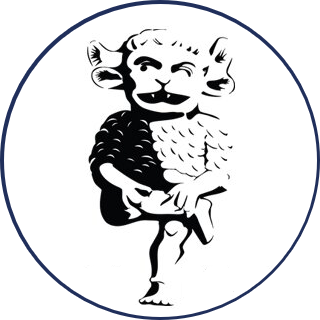We are constantly surrounded by noise, from ipods, to going out at night, or just frequently hearing the trains rumble pass – but what affect do these everyday things have on your hearing?
Noise Action Week aims to draw attention to the impact of noise on our health, as well as other people.
While there’s no getting away from it, noise exposure can be irritating, says Noise Action Week’s Carina Perkins.
“Studies have shown it can lead to physical and emotional stress, sleep disturbance and serious health conditions such as raised blood pressure and even heart attacks,” she says.
Listening to MP3 players at a loud volume and working or dancing in a club can also mean risking our health.
The results of a recent EU report on personal music player listeners shows just how bad it is: “As many as 5-10% of personal music player listeners are at risk of permanent hearing loss through listening to music at high volumes for long periods of time,” Perkins says.
“The situation is of particular concern in the EU because of the increasing proportion of the population listening to such devices, particularly young people. Around 2.5 – 10 million people are now at risk.”
Jonathan Buckley, an ex-University of Lincoln student, knows first-hand the damage listening to loud music can have on your health. Two weeks ago the twenty-one-year-old burst his ear drum after spending long periods of time listening to loud music.
“The main cause was that I had a weak eardrum anyway, however the doctor said that prolonged use [four hours a day on the bus] of ‘in-ear’ headphones was the major cause,” he says.
“He also said that in-ear headphones were a big cause of many hearing problems in younger generations nowadays,” Buckley adds.
Despite being told by his Doctor that he may lose a proportion of his hearing, fortunately two weeks later his hearing is fine. From his painful experience, Buckley advises students to be wary of how much time they spend listening to loud music.
“When I think about the possibility of losing the ability to be able to enjoy my music, it definitely makes me think twice about turning the volume up….even if my favourite ‘Bon Jovi’ track does come on shuffle,” he adds.
As well burst ear drums, there are other effects on your health.
“(Tinnitus) is more common than you might think. The British Tinnitus Association estimates that almost five million people in the country, an astounding 10% of the adult population, live with tinnitus,” Perkins says.
DJ Demi has been working as a DJ for eight years, and DJ’s at the Engine Shed’s Fever Pitch night every Wednesday. The twenty-seven-year-old is exposed to more than ten hours of loud noise a week, and is very aware of the damage it has on his health.
“Obviously being a DJ it’s quite important to be able to hear, and I get my ears tested every year without fail”, he says.
His tests have shown that if he loses his hearing a bit more, Demi will start to need a hearing aid. A prospect he admits is quite scary.
Demi is also one of the 10% of adults that suffer from tinnitus.
“When I’ve finished at work my ears will ring for a couple of hours afterwards, which isn’t pleasant but I’m kind of used to it now,” he says.
Demi works in a bar too, and is conscious that he is exposed to noise there. But when he’s DJ-ing, Demi tries to prevent damage to his hearing by wearing special ear plugs that decrease the volume of noise:
“I’ve got some special ear plugs that knock fifteen 15 decibels off the level of sound I hear, and when I wear my headphones, obviously that also defends my hearing,” he says.
Demi advises students to be careful with their hearing, whether they’re out in a club or listening to music at home:
“Wear ear protection. Get some cheap ear plugs. It’s very loud in there, but if you’re at the front just be very careful, because your hearing is just such an important thing. If you don’t have to have it too loud, then don’t. Your hearing’s vital. Get your ears tested as well, it doesn’t cost you anything,” he says.
Deafness Research UK also recommend following the ‘60-60 rule’; “Listening to a maximum of 60 minutes at a time, at 60% of volume capacity,” Perkins says.
Five top-tips for hearing-friendly nights out!
– Less clubbing! Perkins says that spending more than two nights a week at clubs puts you at risk of damaging your hearing,
– Buy earplugs! Both Demi and Perkins push for the use of earplugs. According to Perkins, investing in a pair will “protect the ear canal against damage from loud noise”.
– Take a break! “Taking 10 minute ‘breaks’ throughout the evening and go somewhere quiet,” advises Perkins.
– Drink plenty! “Dehydration can have a detrimental effect on inner ear function,” so Perkins says to drink plenty of fluids during a night out…
– …But not alcohol! “Too much alcohol in a noisy environment causes a fluid shift out of the inner ear, which can increase damage,” Perkins says.

